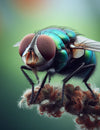
Pests’ presence will always be a big nuisance. Having pests create big trouble whether it is for homeowners or farmers. Until you don’t have an infestation pest seems to be harmless, but they can cause damage at high range. Pests can add contamination to the field.
However, better knowledge of pests and infestation can result in the early termination of the problem.
Prevention measures for pest control
Nothing is better than the situation when we use prevention techniques as day to day routine. Prevention is as important as a key step in the pest control process. Pests can be controlled using many tactics such as pesticides, biological control, etc.
1. Pest identification
2. Pest control methods
Pest identification
Pest identification is a key step in controlling them. Pest can serve you from just annoyance to deadly disease. Some pests are indeed beneficial and good environment but other some are harmful. Some common household pests you might come in contact with are roaches, mosquitoes, rats, lizards, etc.
Common pests that invade the field are mostly insects such as aphids, beetles, leafhoppers, and more. Other pests you may encounter are rats and birds.
If you are aware of what pests exactly you are dealing with it becomes a lot easier to terminate them. Information about the enemy can lead you to the exact solution to fight them. Pests like rats can be very dangerous for your offices and fields. As they can gnaw on your important document, cable and they can destroy the whole farm.
Pests can be identified by their leftovers, or by their direct sight. You can also search the place if you suspect anything unusual. Keeping on their destroying behavior can be a great help. Make sure through the hiding areas of pests.
Pest control methods
Pest control in the field majorly falls into two categories named Biological Control and Chemical Control. Let's dig into to know about these two methods in detail.
Related - How to deal with termite infestation?
Biological Control
Biological control is the way to terminate pests with a living organism. This method can include parasites, nematodes, or natural substances to control all kinds of pests. Biological control doesn’t include chemicals that can be harmful to the ecosystem.
Using beneficial parasites is an effective way of controlling insects or pests, especially in a closed structure like greenhouses.
One another technique that can be used in biological control is the use of plants. These plants are called “Pest-resistant cultivars”. Planting pest-resistant crops are one of the simplest and safest ways of controlling insects in fields.
Chemical Control
The use of pesticides for pest control is the most prominent solution that is used by farmers. Pesticides are directly used as a spray on crops and soil. And because of chemical power, we sometimes encounter immediate results. For some farmers using pesticides is a permanent solution to get rid of pests because of the fast result.
But the chemical-based solution comes with a lot of side effects. Some of the side effects are reducing the soil resistance, bad effect on the ecosystem and environment, etc. Pesticide may result in plant growth with increasing soil power but it reduces the soil's water and nutrients holding power.
Chemical control does include in IPM methods but IPM (Integrated Pest Management) major goal is to minimize the use of pesticides.
You may like - Different types of termite treatments?



